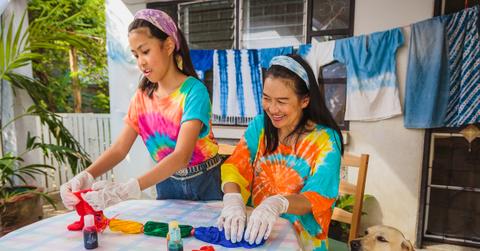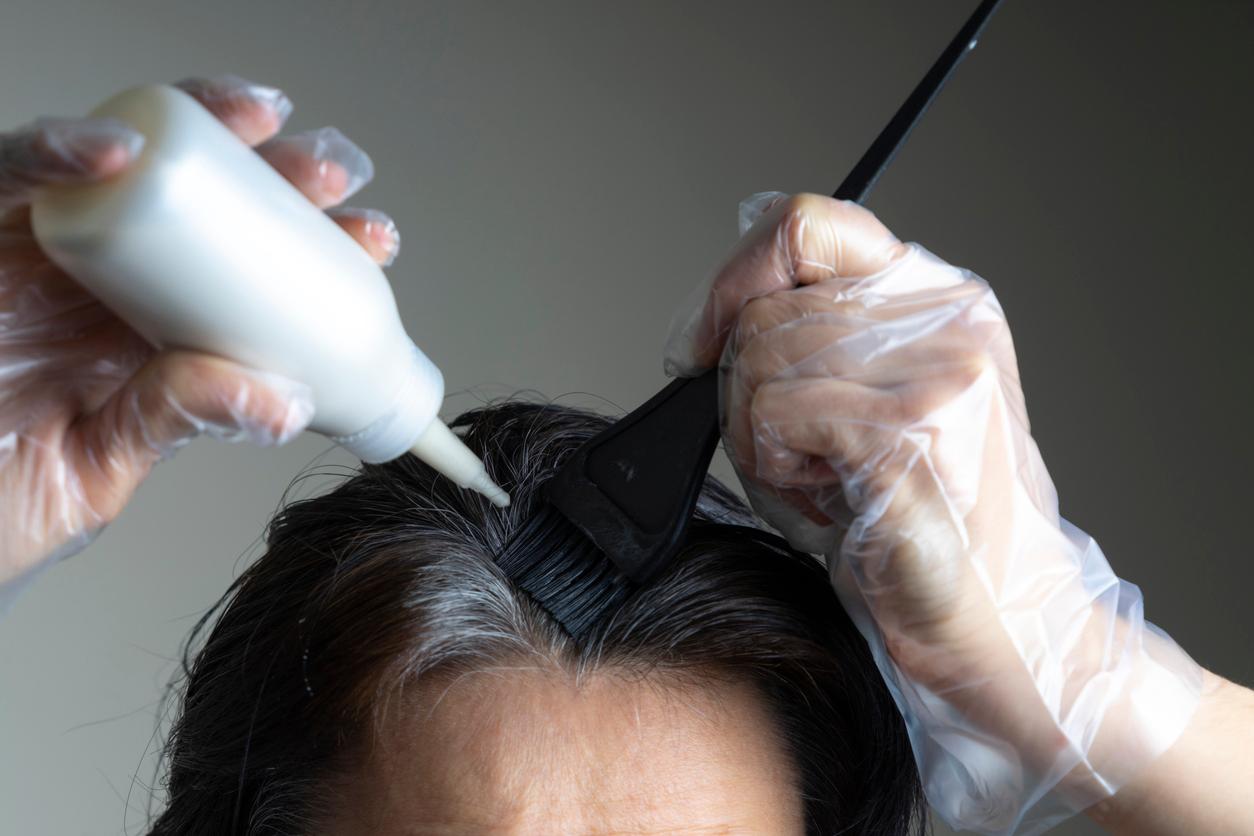Our Guide to Safely Getting Tie Dye Off of Your Skin
Makeup remover and other similar products may prove to be effective at stripping the dye from your skin.
Published June 11 2024, 10:57 a.m. ET

If you were tie-dyeing custom shirts before your next Taylor Swift concert, working on a fun DIY project at home, or simply enjoying the beautiful, fun art of tie-dyeing, you know how messy it can be. If you get some of the dye on your skin, not to worry, as there are many safe and effective ways to clean the dye off to keep your skin clear.
Keep reading to learn how you can safely remove tie dye from your skin and continue making fun, creative, inspired projects without concern for the splash of tie dye on your skin.

How to get tie dye off skin:
According to Parents, if a tie dye stain stubbornly sticks to your skin after washing your hands with soap and water, try using a paste of baking soda and water. This concoction is known to be abrasive enough to break down the dye, but gentle enough to not cause damage to the skin.
If your baking soda paste still doesn't resolve your tie dye-stained skin, you can also try olive oil or baby oil massaged onto the portion of the dyed skin for a few minutes.
You can also try massaging vinegar onto the dyed area of the skin for a few minutes with the intent of exfoliating the layer of skin with the dye on it.
Experts also recommend orange or lemon-based cleansers to getting stubborn tie dye off your body. The citric acid within the cleanser aids in breaking down the dye, leaving your skin less susceptible to damage.
Allie Kukuch, the head chemist at Rit Dye, told Martha Stewart the issue is at the chemical level.
"You're changing the pH, or you're changing the charge," she explained to the magazine. "The reason that we add salt to the dye bath [is] because we want the cotton to be a positive charge, so that the negatively charged dye will associate with the cotton stronger. A lot of your removal techniques are going to be the opposite of that. You're trying to make them repel from each other, from your hands, and the dye."

How to get hair dye off skin:
According to Southern Living, one can avoid accidental dyeing of the skin in the first place by applying petroleum jelly around the perimeter of the hairline to act as a barrier. (For a more eco-friendly alternative to both Vaseline and generic petroleum jelly, I like the Whole Foods' Multi-Purpose Jelly, which is petroleum-free and does not contain animal byproducts.)
Southern Living also recommends using makeup remover as a gentle way to remove hair dye from your skin. You can also try rubbing toothpaste (that has baking soda as an ingredient) on the dyed skin.
VeryWell Health recommends baby wipes, olive oil, or white vinegar applied the same way as described above for tie dye stains; you could also try using an exfoliating facial wash or dandruff shampoo with salicylic acid (though be warned, if you get this on your hair, it could strip some of your dyed hair's color).
Perhaps your stubborn stain reached your hands, rather than your facial area, and it still isn't coming off. There are a few harsher methods you could try (such as liquid laundry soap, nail polish remover, and ammonia, per VeryWell Health) you absolutely must consult a medical professional first.
Any combination of chemicals utilized in a non-traditional manner on the skin should be done so by a professional, in a closely-monitored setting, to avoid catastrophe.
And if all else fails, the dye on your skin will fade on its own over time.